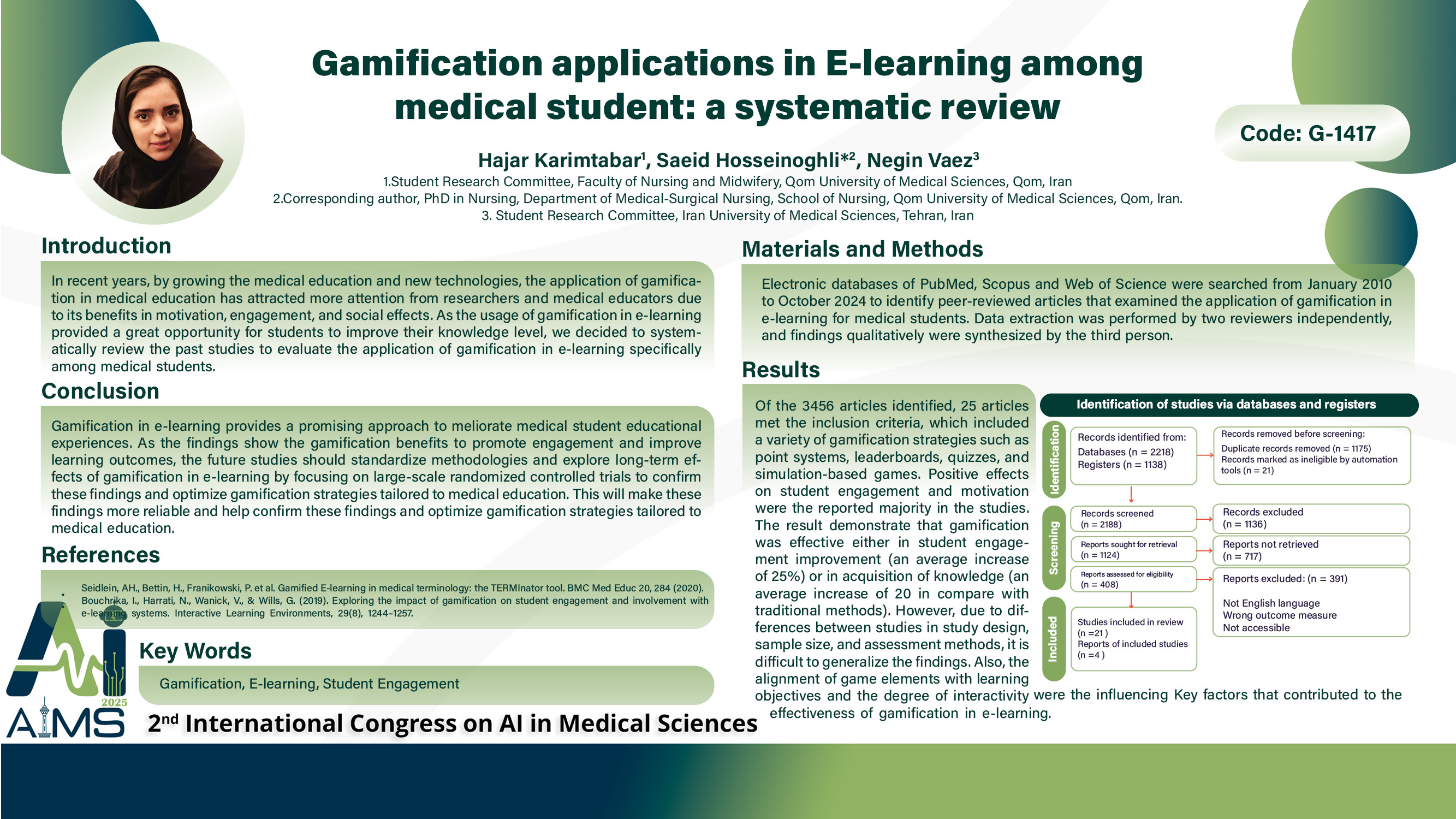Gamification applications in E-learning among medical student: a systematic review
Code: G-1417
Authors: Hajar Karimtabar ℗, Saeid Hosseinoghli *, Negin Vaez
Schedule: Not Scheduled!
Tag: Robotics in Surgery and Care
Download: Download Poster
Abstract:
Abstract
Introduction: In recent years, by growing the medical education and new technologies, the application of gamification in medical education has attracted more attention from researchers and medical educators due to its benefits in motivation, engagement, and social effects. As the usage of gamification in e-learning provided a great opportunity for students to improve their knowledge level, we decided to systematically review the past studies to evaluate the application of gamification in e-learning specifically among medical students. Methods: Electronic databases of PubMed, Scopus and Web of Science were searched from January 2010 to October 2024 to identify peer-reviewed articles that examined the application of gamification in e-learning for medical students. Data extraction was performed by two reviewers independently, and findings qualitatively were synthesized by the third person. Results: Of the 3456 articles identified, 25 articles met the inclusion criteria, which included a variety of gamification strategies such as point systems, leaderboards, quizzes, and simulation-based games. Positive effects on student engagement and motivation were the reported majority in the studies. The result demonstrate that gamification was effective either in student engagement improvement (an average increase of 25%) or in acquisition of knowledge (an average increase of 20 in compare with traditional methods). However, due to differences between studies in study design, sample size, and assessment methods, it is difficult to generalize the findings. Also, the alignment of game elements with learning objectives and the degree of interactivity were the influencing Key factors that contributed to the effectiveness of gamification in e-learning. Conclusion: Gamification in e-learning provides a promising approach to meliorate medical student educational experiences. As the findings show the gamification benefits to promote engagement and improve learning outcomes, the future studies should standardize methodologies and explore long-term effects of gamification in e-learning by focusing on large-scale randomized controlled trials to confirm these findings and optimize gamification strategies tailored to medical education. This will make these findings more reliable and help confirm these findings and optimize gamification strategies tailored to medical education.
Keywords
Gamification, E-learning, Student Engagement
